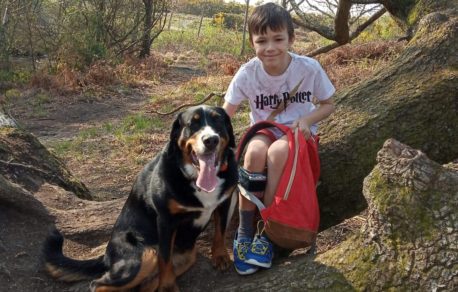Sign up to our mailing list to receive expert advice to help you improve your financial, mental and physical wellbeing, so that you can live well every day. We'll also send you the latest news and updates, and information on how you can get involved with Foothold and support the engineering community.


Tips on physical wellbeing
Avoiding preventable illness, feeling energetic and ready to take on your day – whatever physical wellbeing means to you, there are things you can do to get there
Feel well, do well
Feeling well means making choices to improve health, avoid preventable disease and feeling like you are fit enough to take on your day. There are lots of ways to get healthier and feel better, and you can start with small, positive changes.
Getting enough sleep
Being well-rested is good for the mind and the body. Getting enough sleep will make you feel good and help you make better decisions. Our physical wellbeing, as well as mental resilience, benefits from a good night's sleep.
Eat well
We’re all very busy and it often seems easier to pick up a ready meal or order in. But when this becomes a habit, we aren’t fuelling our bodies to perform at their best. Plan your meals, batch cook and you’ll find you’re getting your five fruits and vegetables in no time. Choosing the right meals can be confusing, that's why it's helpful to use apps like My Fitness Pal which keeps a track of your meals and exercise.
Move your body
Exercise is good for the mind and body. Just 20 minutes a day could make a world of difference. Start with a walk and go from there – your physical wellbeing will improve gradually. You could take part in a weekly park run too - find out more here.
Drink plenty of water
Drinking enough water will give you more energy, help you think more clearly and aid digestion. Keep a bottle to hand whenever you’re out and about. There are some great apps to remind you to drink more water — we like Hydro Coach.
When in doubt, leave it out
There are habits we all have that aren’t good for us. Smoking, drinking, eating lots of meat are just some of them – none of these things do our bodies good. So if you’re not sure it’s doing you any good, try and cut down. Our Wellbeing Hub could help.
You may also be interested in
Not quite what you’re looking for?

SUPPORT FOR YOU AND YOUR FAMILY, STRAIGHT TO YOUR INBOX
![Newsletter CTA Banner Graphic [UPDATED] An image showing someone's hands holding a mobile phone. The phone is displaying a version of the Foothold monthly newsletter.](https://www.myfoothold.org/app/uploads/2023/07/Newsletter-CTA-banner-graphic-UPDATED.png)
Your stories
Blog

Neurodiversity at work: How leaders and managers can support neurodiverse staff to thrive
Neurodivergent engineer Martin shares his some top tips to help leaders empower neurodiverse colleagues to thrive at work.

Working with ADHD: Thriving with FREE Help from Access to Work
Sam shares her experience with Access To Work and how it can help other engineers with neurodiversity.

“Making a meaningful and enduring difference” – your impact in 2022-23
Our CEO Jane shares her thoughts on how your support helped us make a real difference for engineers and their families around the world.
